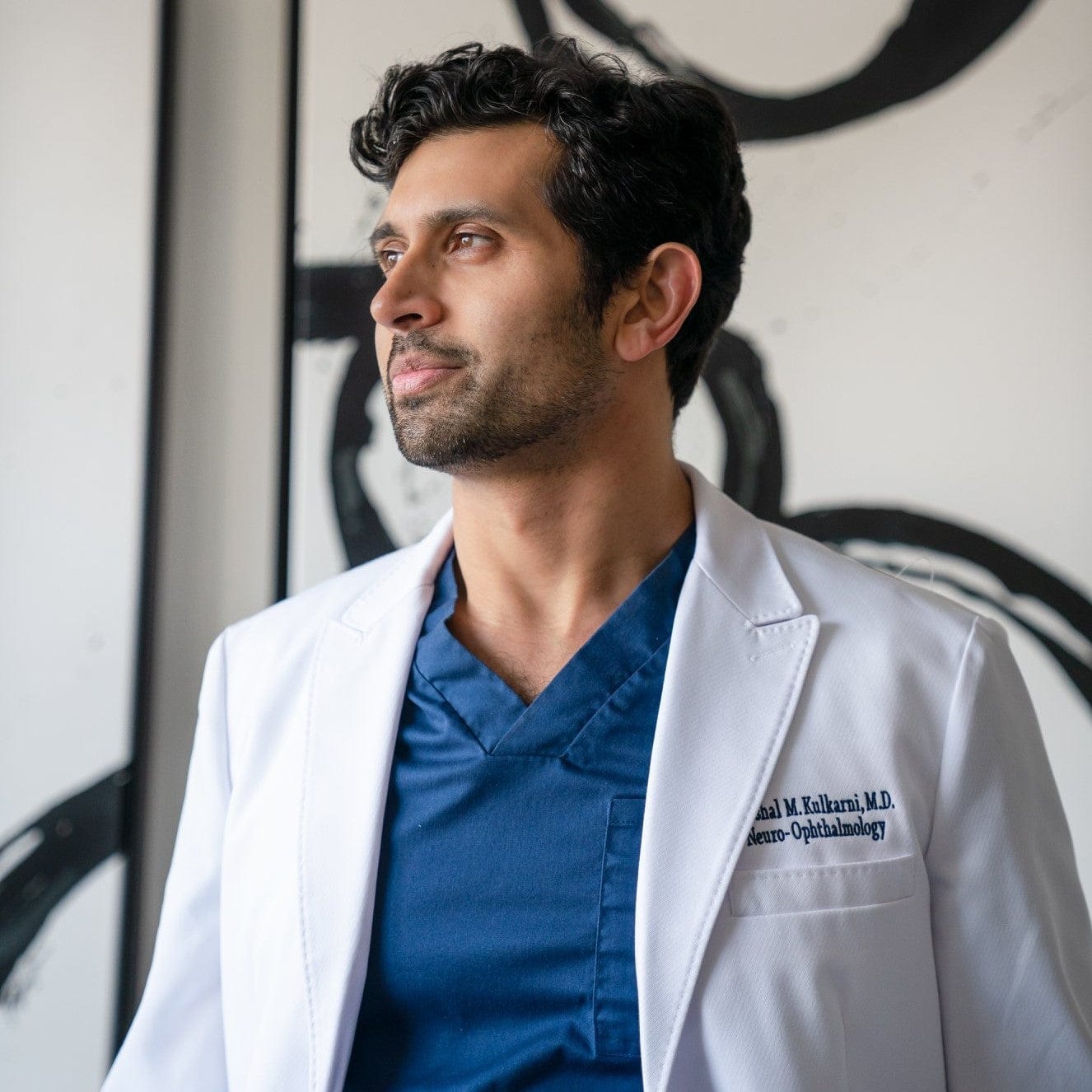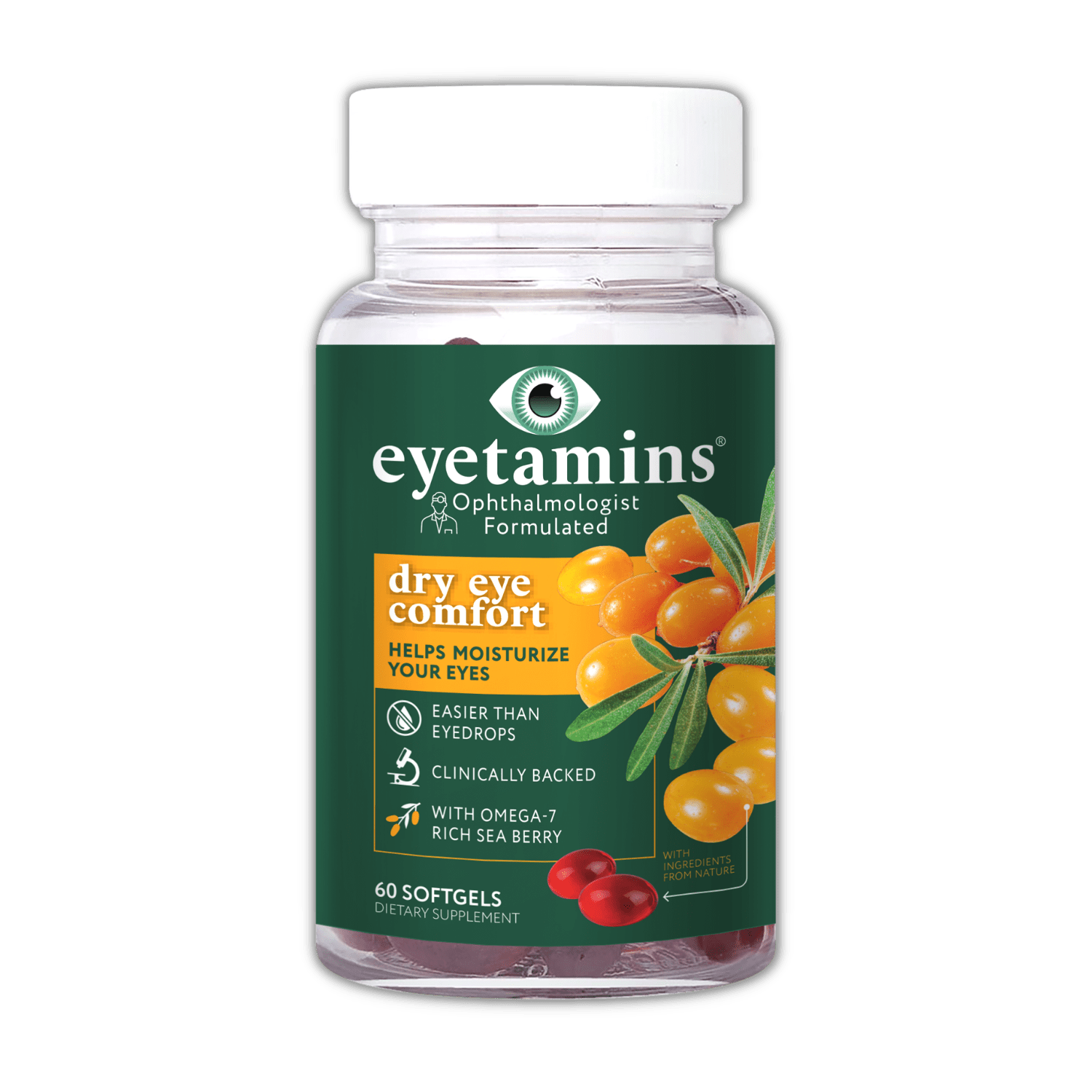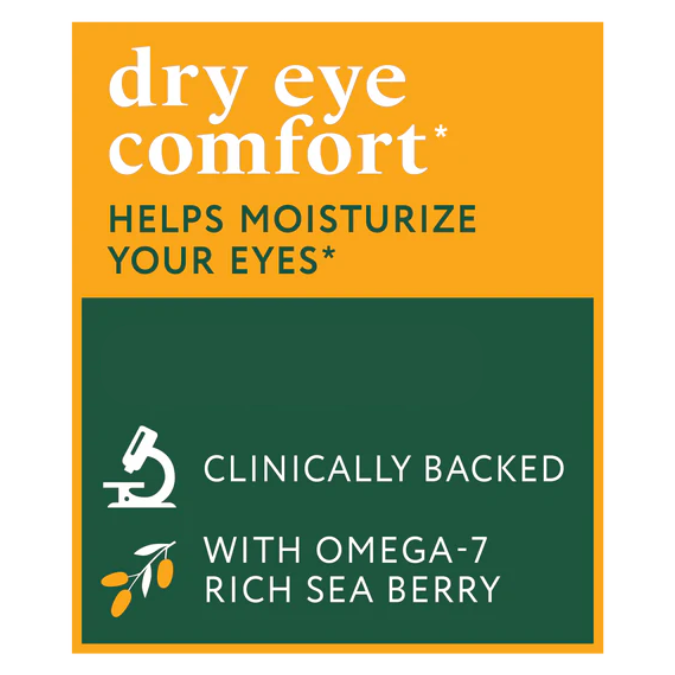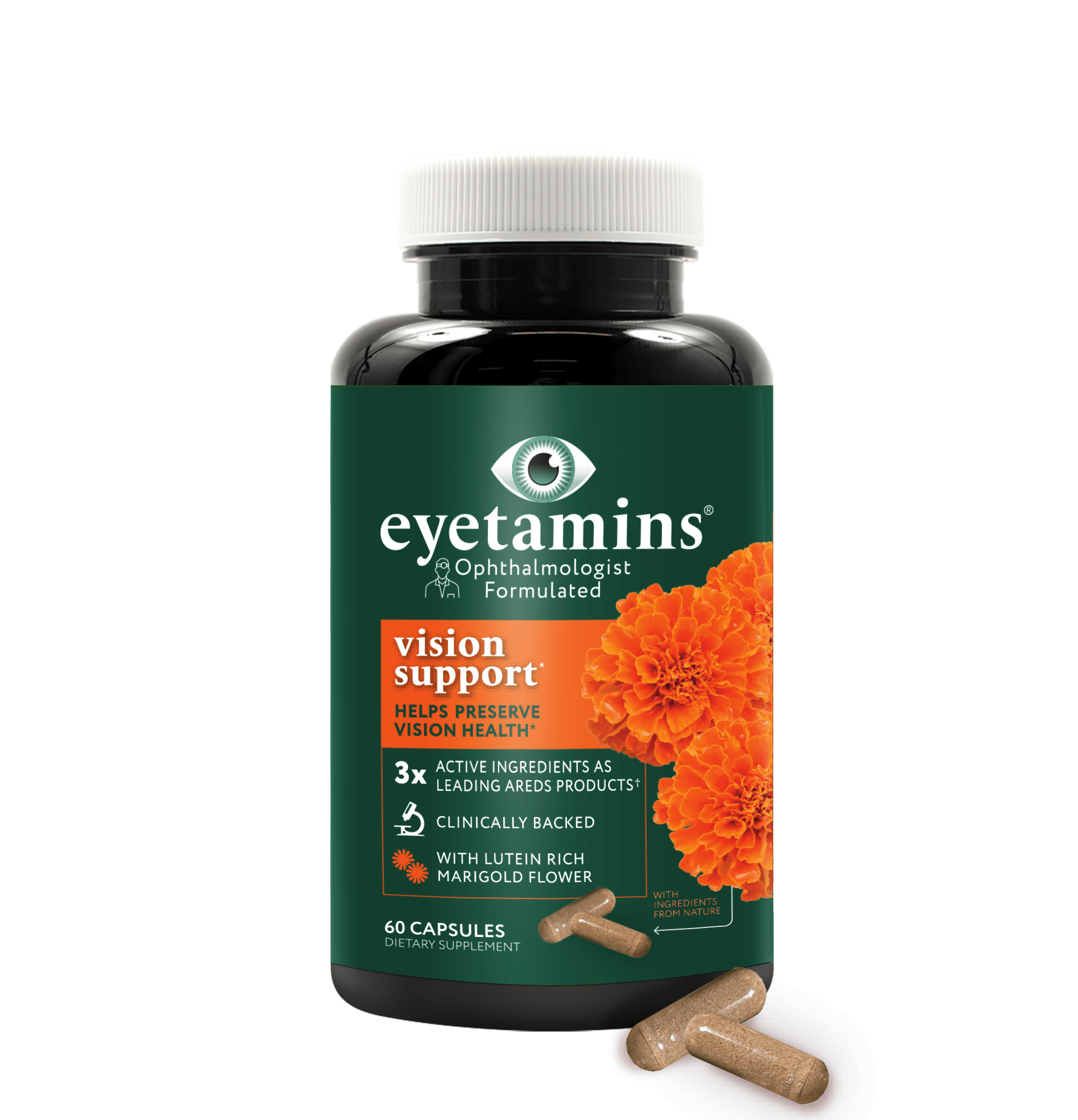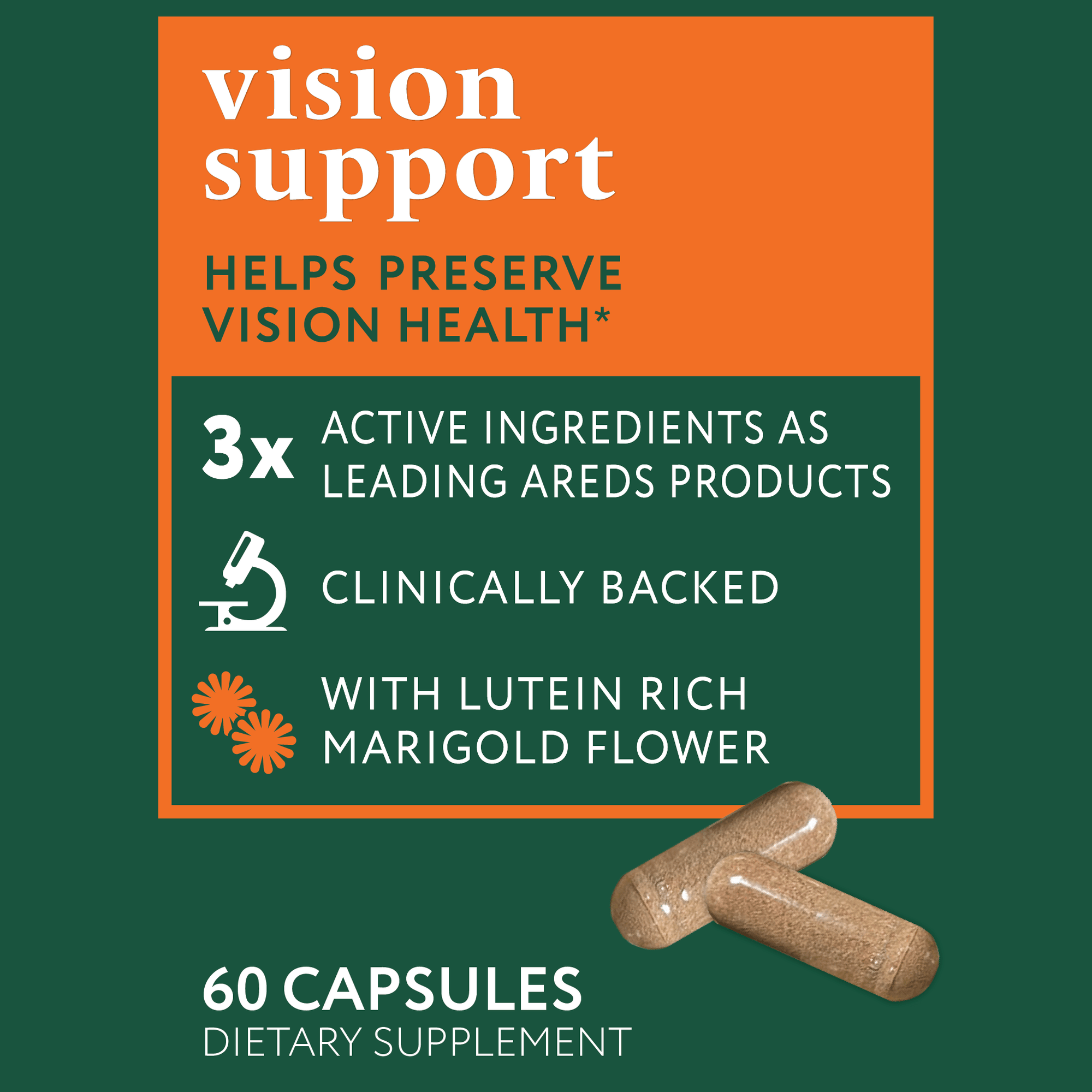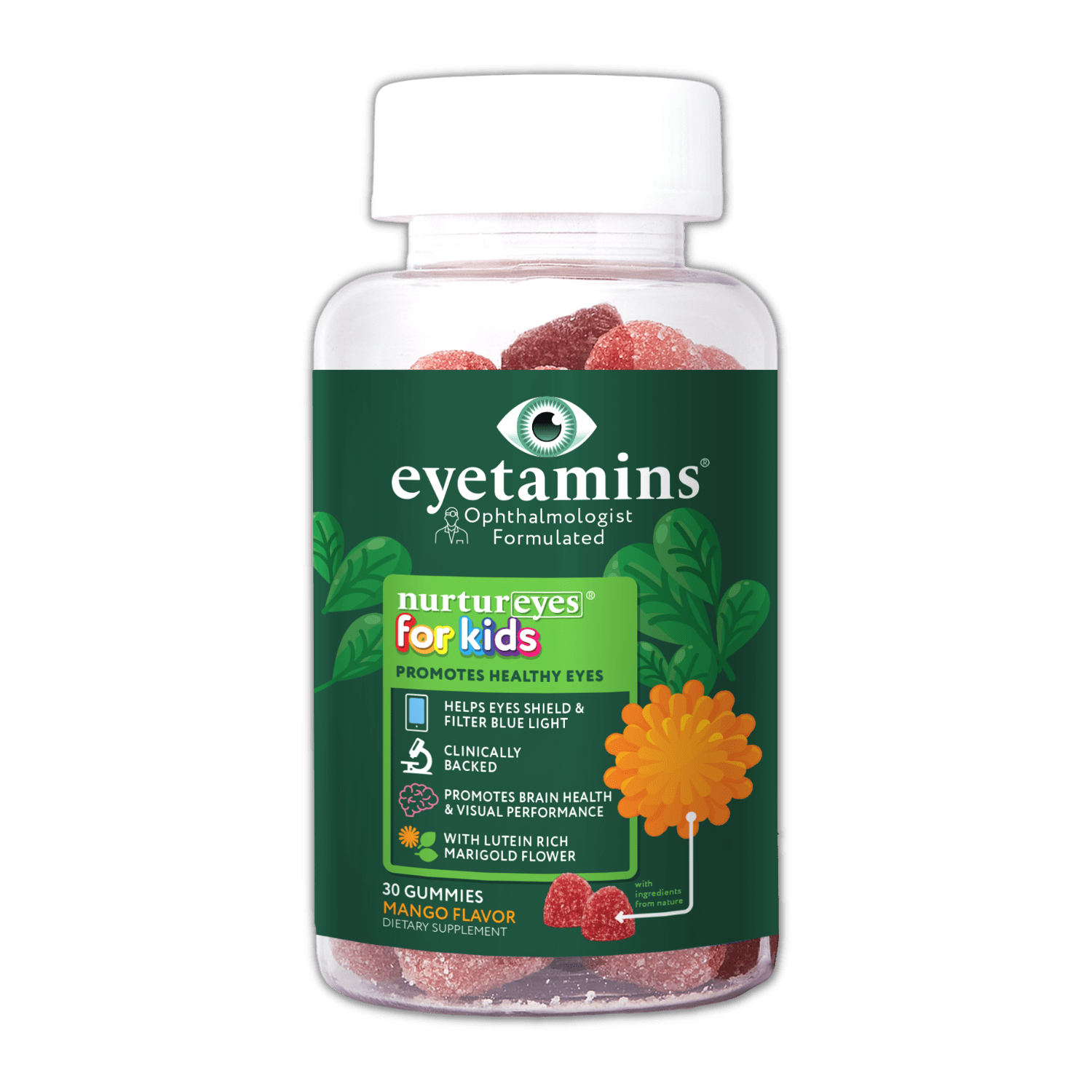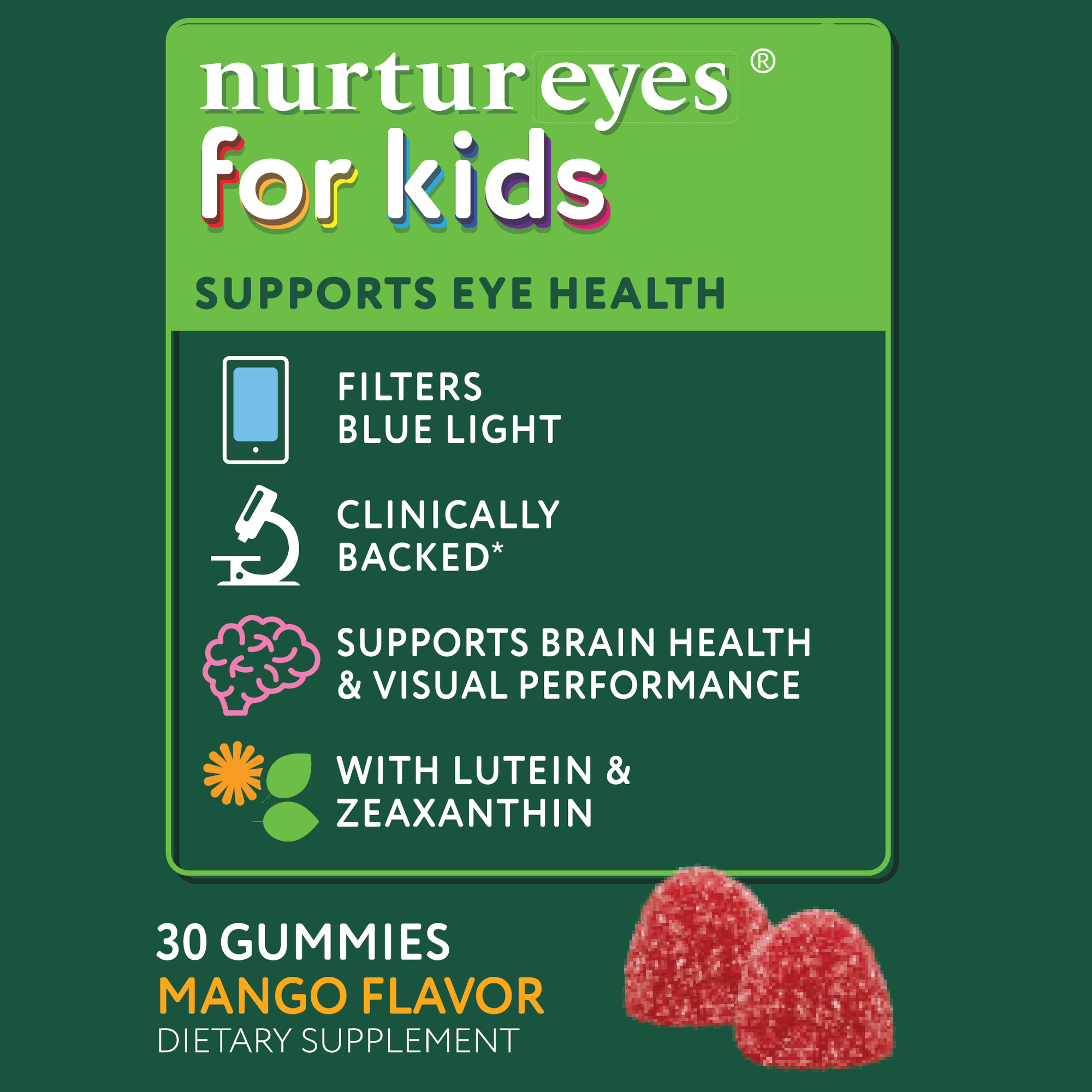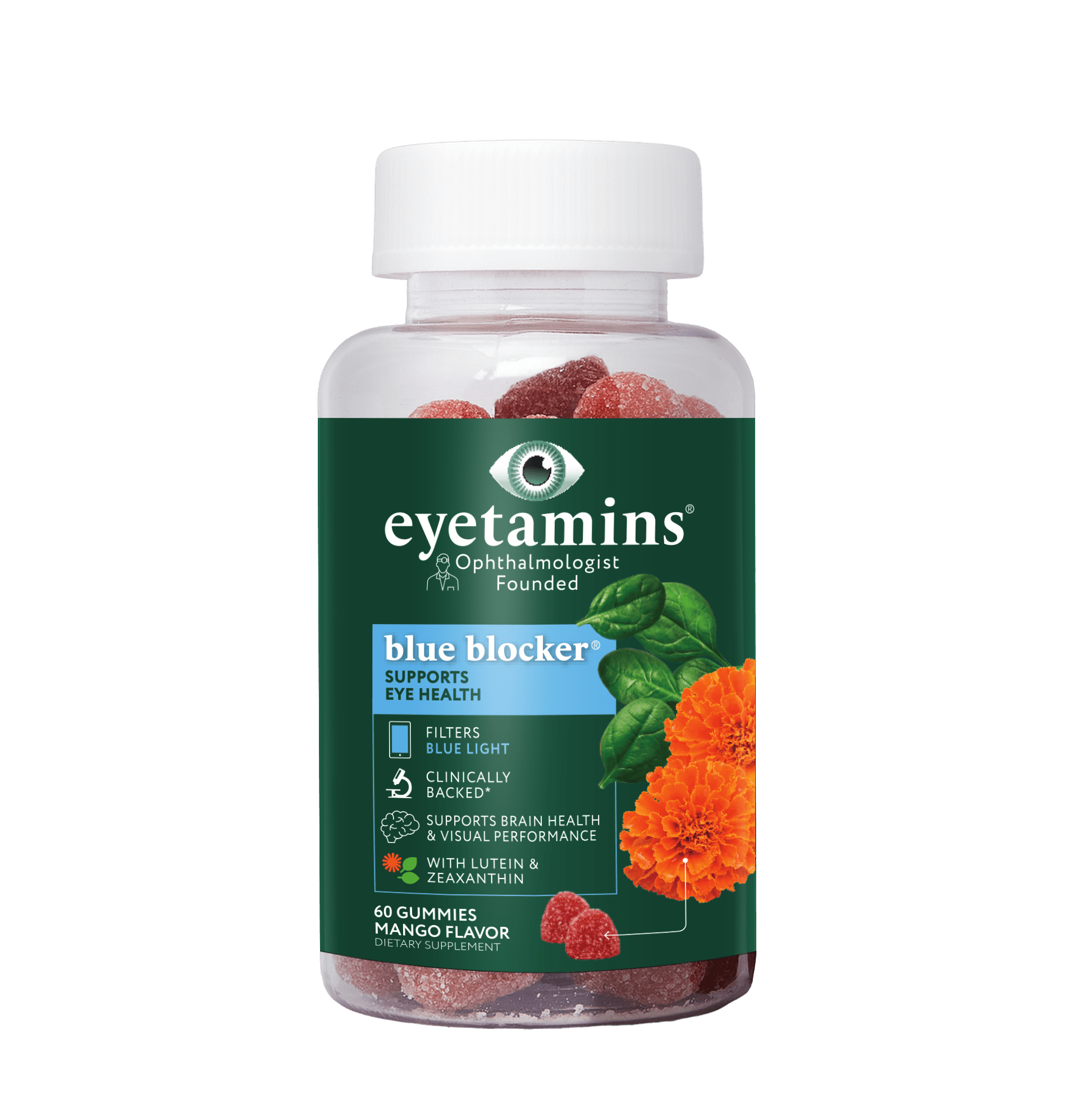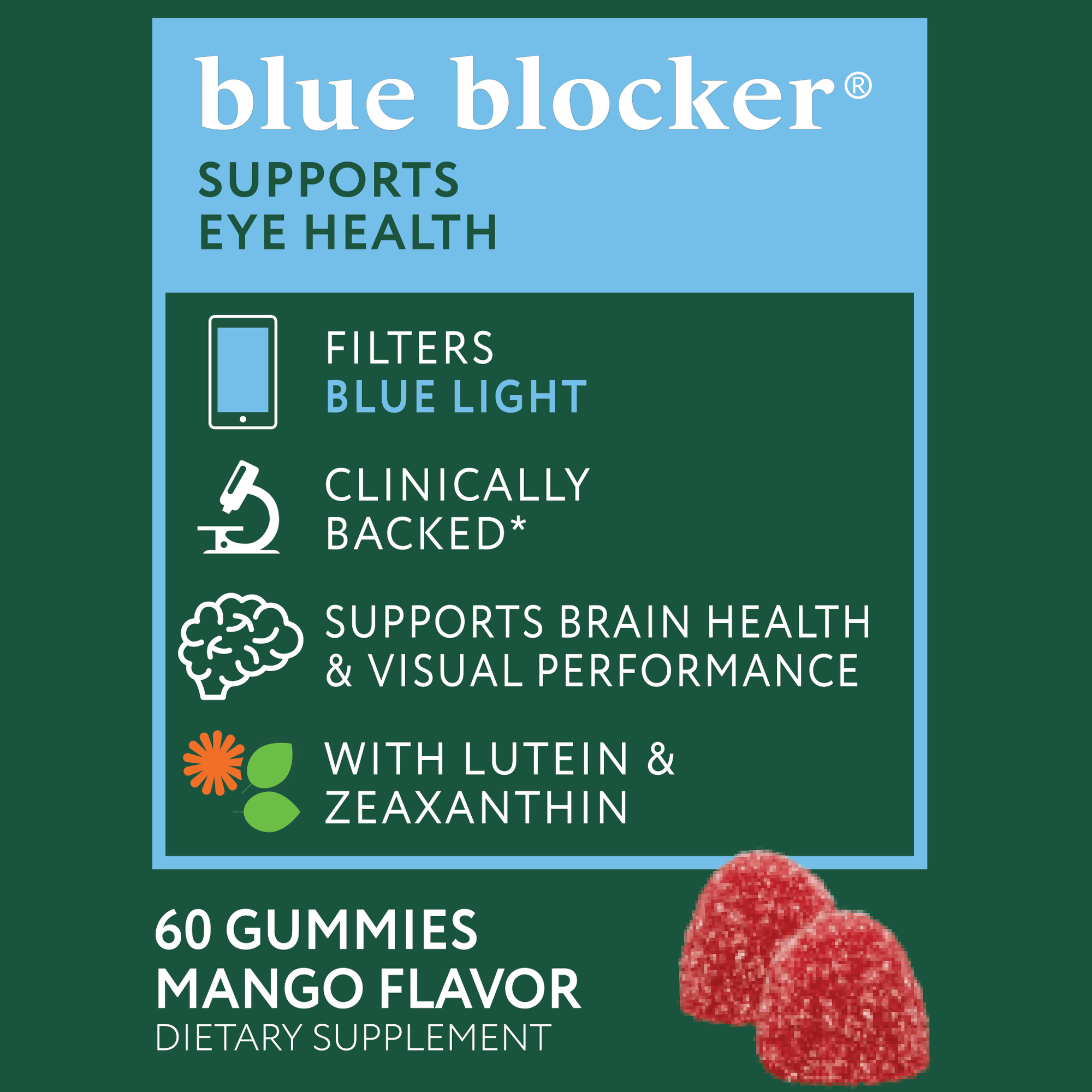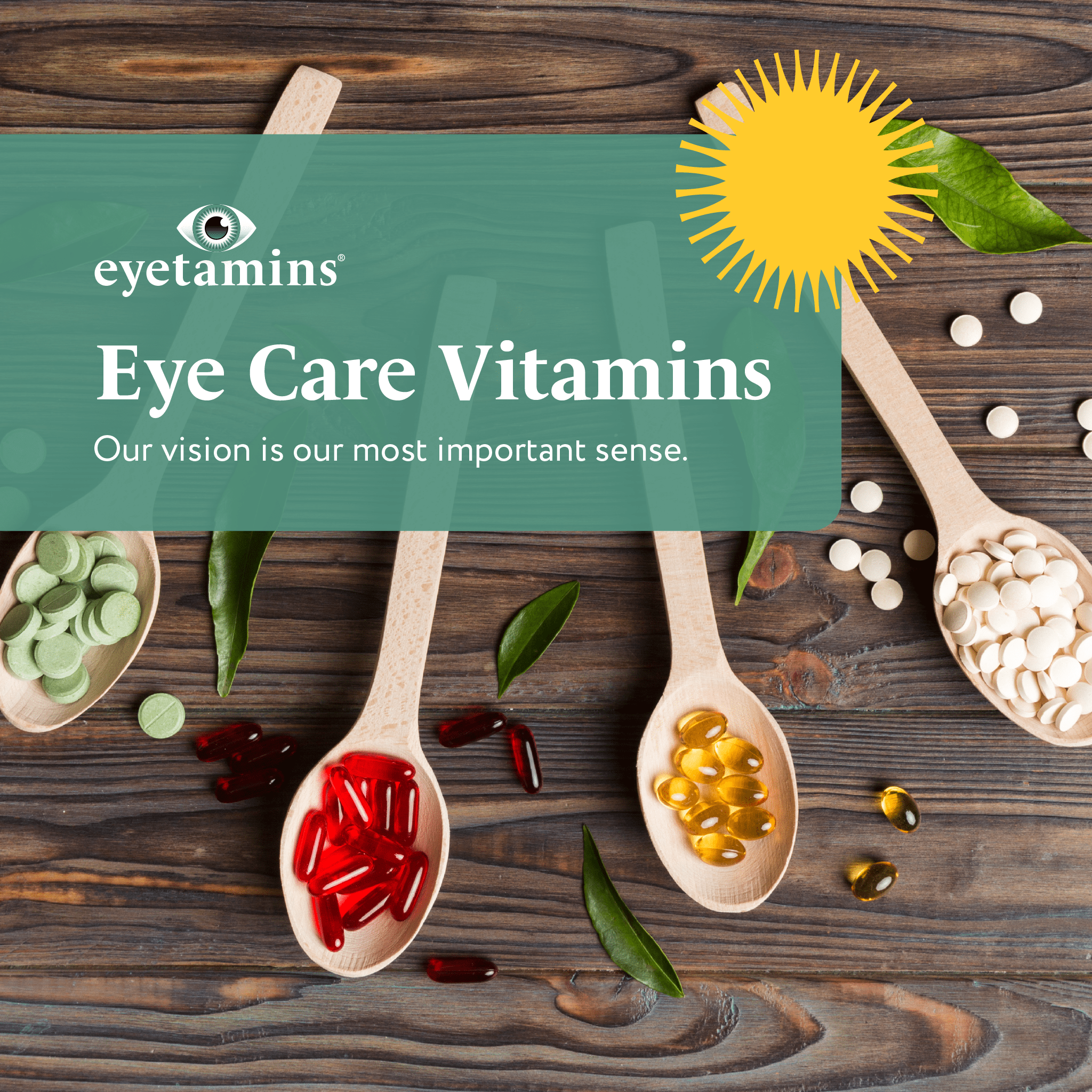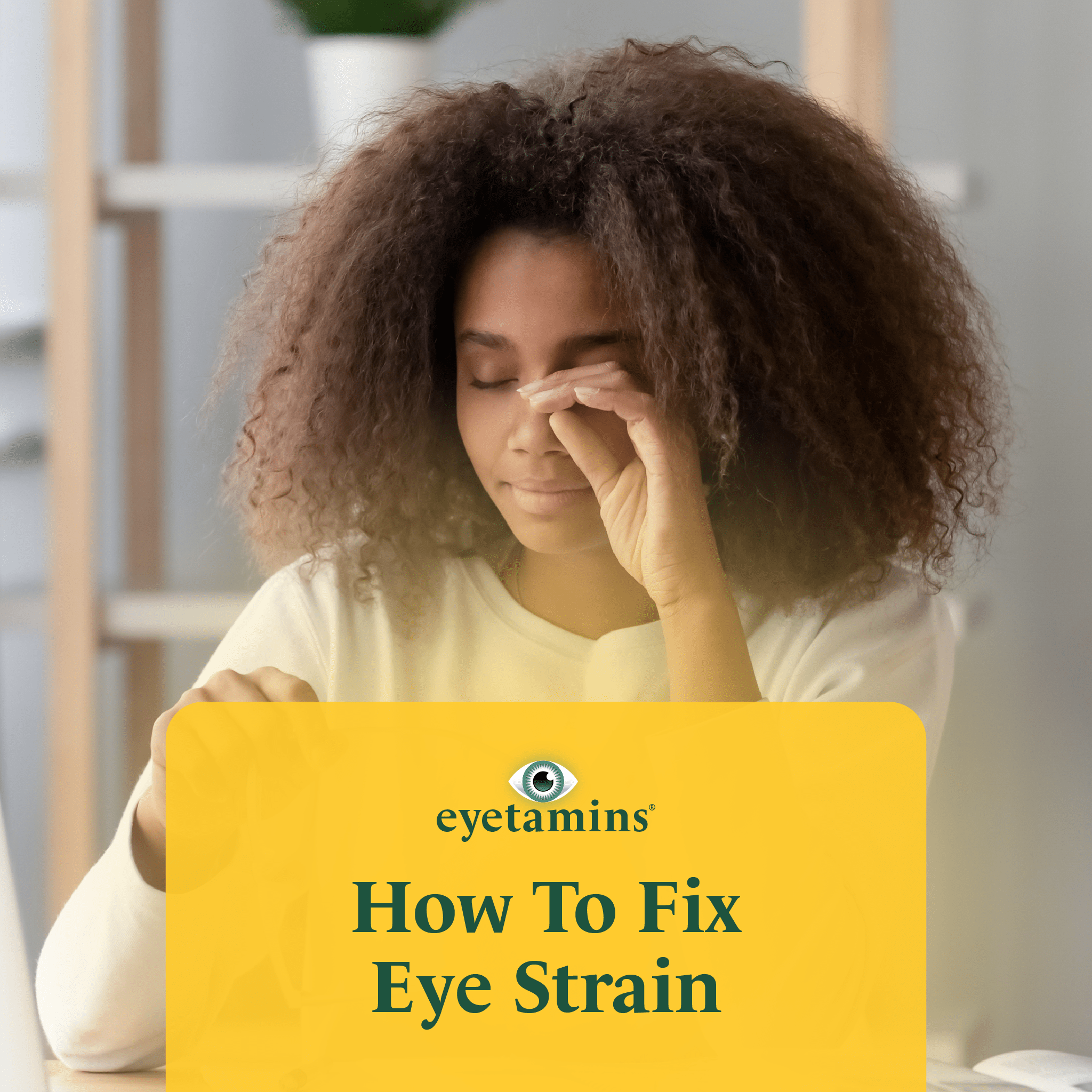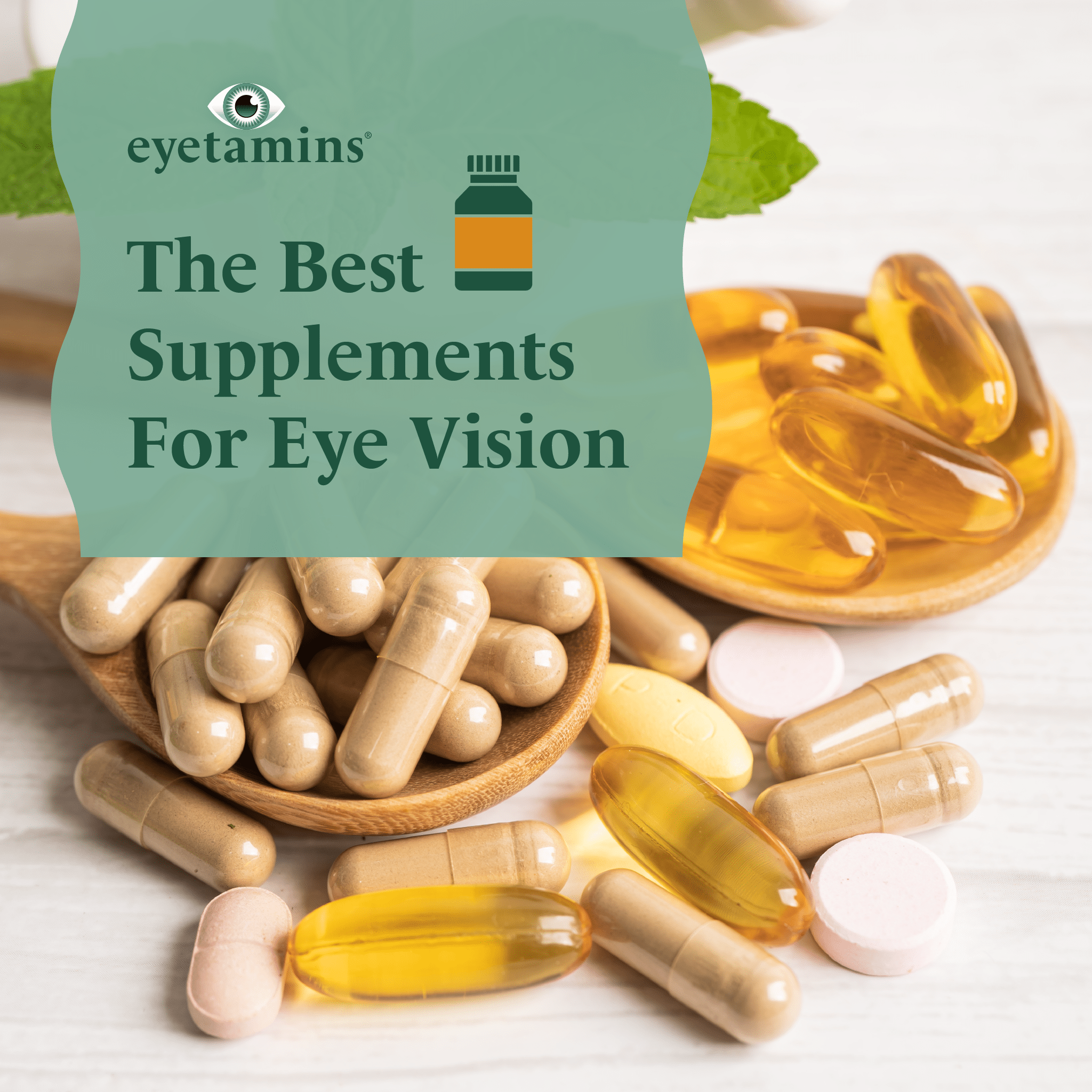· By Dr. Kaushal M. Kulkarni, M.D.
3 Ways Eye Supplements Help With Sleep
You may be surprised to learn that the quality of your sleep is directly related to your eye health. Indeed, many of the same nutrients the body uses to regulate its wake-sleep cycle are used by the eyes to maintain proper vision and to fight off vision-damaging disease.
For this reason, taking a daily eye-health supplement can have a concurrently positive effect on your sleep. In this article, we explore exactly why that is by taking a closer look at the ways in which sleep and your eye health are connected.

Eye Health and Sleep
What is the connection between eye health and sleep? After all, they seem only marginally related. But in fact, the two are rather dependent upon each other. Healthy eyes require rest, while a good night’s sleep can be completely ruined by failing to care for your eyes.
How a Lack of Sleep Affects Your Eye Health
In order to fully replenish and restore themselves, your eyes need at least five hours of sleep each night. During this time, the eyes heal any minor abrasions, flush out dust and dirt, and stay lubricated. When you get too little sleep, your eyes are not given the chance to heal properly. They become red and bloodshot, and may start to feel heavy and difficult to keep open. Eye issues like dry eye, eye strain, and twitching become more likely.
How the Way You Care for Your Eyes Affects Your Sleep
On the other hand, not taking proper care of your eyes can be a direct cause of a lack of sleep. If you wear contact lenses, be sure to remove them overnight while you sleep. Doing so will not only allow your eyes more access to all-important oxygen, but your eyes will become less prone to the uncomfortable swelling and infection that often accompanies wearing contacts too long.
Perhaps most notably, exposing your eyes to blue light in the hours right before bed can drastically reduce the quality of that night’s sleep. Blue light regulates your circadian rhythm by signaling to your brain when it is time to be awake, and when it is time to sleep.
Today, blue light is emitted from television screens, computer monitors, smartphones, e-readers, and even some lightbulbs. Spending time on your phone or binging that new Netflix series in the 2-3 hours before you try to fall asleep can confuse your brain into thinking it’s time to be awake and active, instead of winding down for the day.
3 Ways Eye Supplements Help With Sleep
Believe it or not, a daily eye health supplement can go a long way in helping you to get a good night’s sleep. Consider:
1. An Eye Vitamin That Helps Block Blue Light Also Helps Support Your Circadian Rhythm
If watching television, working late, or scrolling social media is part of your late-night routine, then you likely have trouble falling or staying asleep at night. While many ophthalmologists recommend putting away the digital devices at least two hours before bed, many also recommend adding a blue-light blocking vitamin into your daily regimen.
Blue light-blocking eye vitamins work by providing your eyes with the vitamins and nutrients they use to naturally filter blue light. Adding such a vitamin into your dietary routine will ensure your eyes are receiving enough of these vitamins and nutrients, thereby helping them to better absorb blue light and supporting your natural circadian rhythm.
2. Many of the Same Vitamins That Promote Eye Health Also Promote Sleep
It’s hardly coincidental that many of the vitamins and nutrients that are good for your eyes are also good for promoting sleep. Both melatonin and vitamin E are common ingredients of eye-healthy vitamins as well as over-the-counter sleep aids.
- What Melatonin Does for Sleep: Melatonin is a natural hormone produced by the body. At night, high melatonin levels signal to the brain that it is time to sleep.
- What Vitamin E Does for Your Eyes: Vitamin E protects the eyes from harmful free radicals. Keeping Vitamin E in your system can greatly reduce your chances of developing vision issues.
3. Eye Vitamins Help Avoid the Ocular Issues That Affect Sleep
A recent Dutch study found a surprising link between Dry Eye Disease (DED) and trouble sleeping. The research concluded that those with DED “have poorer sleep, and that patients with sleep disorders are more likely to have DED.” An eye-healthy vitamin that contains Vitamin D, Omega 3s, and/or sea berry helps to keep the eyes moisturized.
People Also Ask
1. What supplements help with sleep deprivation?
If you are having trouble sleeping, then it is worth looking into supplements that can help you sleep better. The most effective sleep supplements contain natural vitamins and minerals that aid in both falling asleep and staying asleep.
2. What vitamins help you sleep better?
Vitamin D, vitamin E, B vitamins, magnesium, calcium, and potassium are all vitamins that are naturally found in your body. Many sleep supplements also include melatonin, a hormone that signals to the brain that it is time to sleep.
3. What supplements increase REM sleep?
Melatonin, magnesium, L-theanine, and tryptophan are all supplements that encourage deep, REM sleep.
4. What can I take to help me stay asleep?
If you are having trouble staying asleep, then a sleeping pill that includes melatonin and magnesium may help. A mug of warm milk or herbal tea, and a bit of lavender may add additional assistance for a restful night’s sleep.
Conclusion
Optimal eye health cannot exist without the right amount of good sleep, just as a good night’s rest cannot be had without taking proper care of your eyes. The connection between the two goes beyond exposing your eyes to blue light right before bed or failing to take out your contact lenses while you sleep.
Indeed, a variety of vitamins and nutrients that are used by the eyes also have wide-ranging benefits for the parts of your body responsible for sleep. By taking a daily eye-health vitamin, you can ensure your body is receiving said vitamins, thereby protecting your eye health while maintaining your natural circadian rhythm.

